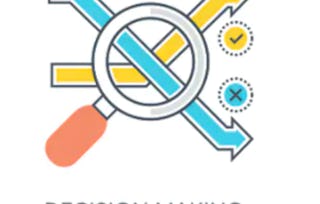This is part of our specialization on Making Decision in Time. For this second course we start with a landmark paper from Chernoff and build new insights into the ideas that his paper sparked. The ending point should bring new code and new algorithm insights into perspective, and use, by many computer and data scientists.

Data Science Decisions in Time:Sequential Hypothesis Testing

Data Science Decisions in Time:Sequential Hypothesis Testing
This course is part of Data Science Decisions in Time Specialization

Instructor: Thomas Woolf
Included with
Recommended experience
Skills you'll gain
- Computer Vision
- Probability Distribution
- Statistical Hypothesis Testing
- Algorithms
- Data Structures
- Machine Learning Methods
- Statistical Inference
- Applied Machine Learning
- Data Science
- Statistical Methods
- Image Analysis
- Bioinformatics
- Bayesian Statistics
- Medical Imaging
- Skills section collapsed. Showing 9 of 14 skills.
Details to know

Add to your LinkedIn profile
11 assignments
See how employees at top companies are mastering in-demand skills

Build your subject-matter expertise
- Learn new concepts from industry experts
- Gain a foundational understanding of a subject or tool
- Develop job-relevant skills with hands-on projects
- Earn a shareable career certificate

There are 6 modules in this course
We extend Wald's ideas for sequential hypothesis testing to a new -- and closely related -- problem. In this second course we evaluate how best to choose from a set of hypothesis for sequentially arriving data. This has many modern applications, for example how best to set a price for a new product, what is the best therapy for a patient, how to determine the rare events in a stream of visual images and many many more. We begin by examining a type of visual search for the 'odd one out' and then build from that first week.
What's included
3 videos1 reading2 assignments
Searching within an ordered hierarchical setting can improve the search. But, it is not immediately obvious how to setup the data structure to support this type of search. In this part of the course we explore how to define a biased walk, based on information, to quickly find an 'odd one out'. From this concept of walking along a tree structure, we then move into thinking about how to best setup that tree structure.
What's included
3 videos1 reading2 assignments
Many real-world applications have extremely large action and/or hypothesis spaces. For the application of Chernoff's ideas there has to be a way to apply the algorithms quickly at scale. In this set of material we examine how approximations may work and how Chernoff's ideas have been extended to different types of problems.
What's included
3 videos1 reading2 assignments
The ideas that we have been exploring can also be applied to data slices collected at disparate windows in time, can be applied to improving MRI scans and can be applied to molecular protein design. These applications all share the concept of using sequential hypothesis testing to improve understanding. In addition, all three of these ideas are under active code development.
What's included
3 videos1 reading2 assignments
In our fifth week we explore how to move beyond the 'odd one out' and into multiple hypothesis testing for streams of data. This could be for setting a dosage level on a medication or on how to identify objects in a set of images.
What's included
5 videos1 reading2 assignments
What's included
1 assignment
Earn a career certificate
Add this credential to your LinkedIn profile, resume, or CV. Share it on social media and in your performance review.
Instructor

Offered by
Explore more from Software Development

Johns Hopkins University

Johns Hopkins University

Johns Hopkins University
Why people choose Coursera for their career

Felipe M.

Jennifer J.

Larry W.

Chaitanya A.

Open new doors with Coursera Plus
Unlimited access to 10,000+ world-class courses, hands-on projects, and job-ready certificate programs - all included in your subscription
Advance your career with an online degree
Earn a degree from world-class universities - 100% online
Join over 3,400 global companies that choose Coursera for Business
Upskill your employees to excel in the digital economy
Frequently asked questions
To access the course materials, assignments and to earn a Certificate, you will need to purchase the Certificate experience when you enroll in a course. You can try a Free Trial instead, or apply for Financial Aid. The course may offer 'Full Course, No Certificate' instead. This option lets you see all course materials, submit required assessments, and get a final grade. This also means that you will not be able to purchase a Certificate experience.
When you enroll in the course, you get access to all of the courses in the Specialization, and you earn a certificate when you complete the work. Your electronic Certificate will be added to your Accomplishments page - from there, you can print your Certificate or add it to your LinkedIn profile.
Yes. In select learning programs, you can apply for financial aid or a scholarship if you can’t afford the enrollment fee. If fin aid or scholarship is available for your learning program selection, you’ll find a link to apply on the description page.
More questions
Financial aid available,

